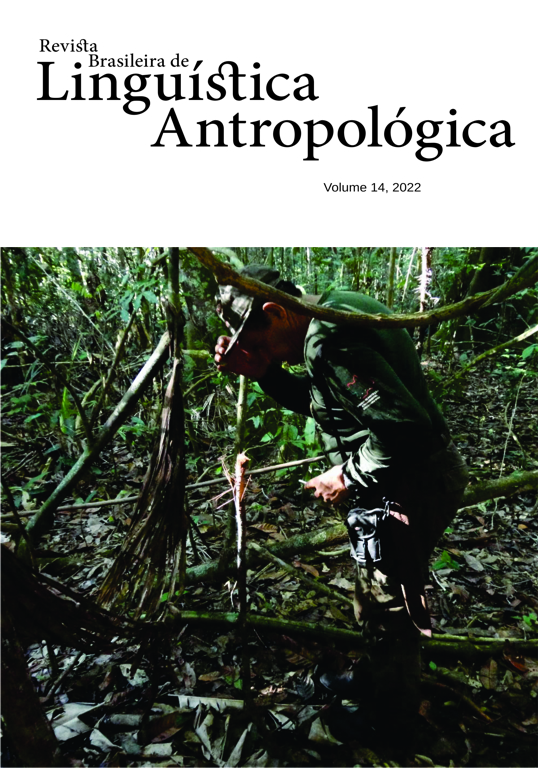Territory, Materiality, Language Attitude
tools of the Guaporé Ethno-Environmental Protection Front in the contexts of Massaco, Rio Omerê and Tanaru Indigenous Territories – Rondônia, Brazilian Amazon
DOI:
https://doi.org/10.26512/rbla.v14i1.43924Keywords:
Isolated, Recently Contacted, Territory. Materiality, Language AttitudeAbstract
The Guaporé Ethno-Environmental Protection Front operates in three indigenous territories: Rio Omerê, the region where the recently contacted Akuntsú and Kanoé of the Omerê live; Massaco, area of isolated groups; and Tanaru. The Front activities guarantee the protection and autonomy of these peoples, as well as the preservation of their integrity in the broadest sense. For the Akuntsú and Kanoé peoples, intervention was vital to safeguard their lives, when in the late 1970s, economic expansion systematically penetrated their traditional territories. For the isolated from the Massaco and Tanaru Indigenous Territories, non-intervention through contact proves to be successful and, since 1990 (Amorim 2016), their rights have been guaranteed, preserving their decision to maintain a situation of autonomy vis-à-vis the national society. Thus, this article seeks to understand the three realities in perspective, reflecting on contextual issues in a historical, linguistic and indigenist view. We understand that, in these contexts, recent contact and isolated peoples reflect historical processes of resistance in the middle and lower Guaporé River.
Downloads
Published
Issue
Section
License
Copyright (c) 2022 Revista Brasileira de Linguística Antropológica

This work is licensed under a Creative Commons Attribution 4.0 International License.
Authors who publish in RBLA agree to the following terms:
a) Authors maintain the copyright and grant the journal the right of first publication, and the work is simultaneously licensed under the Creative Commons Attribution License, which allows the sharing of the work with recognition of the authorship of the work and initial publication in this journal.
b) Authors are authorized to assume additional contracts separately, for non-exclusive distribution of the version of the work published in this journal (eg, publish in an institutional repository or as a book chapter), with recognition of authorship and initial publication in this journal.
c) Authors are allowed and encouraged to publish their work online (eg, in institutional repositories or on their personal page) at any point before or during the editorial process, as this can generate productive changes, as well as increase impact and citation of the published work.










